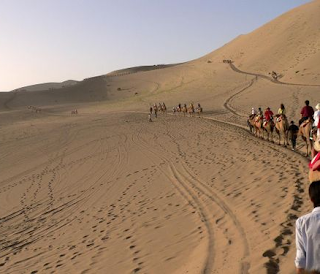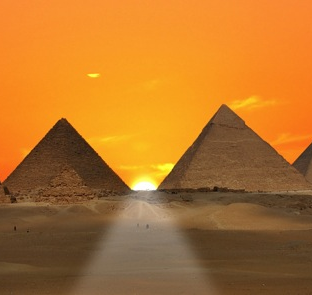Quo Vadis, Aegyptus?

Where to Now Egypt?
The crowds are celebrating; fireworks light up the nighttime sky above Tahrir Square and all of Cairo; the bogey man has fled and tomorrow will shine anew. So goes the old Pharaoh into the sunset of Sharm el-Sheikh. Thus, Global Affairs Columnist Daniel Salem Padovano asks the question that concerns all of Egypt in the wake of revolution.
Relative Tickers: NYSE: EGPT, NYSE: VOD, OTC: EGYMF.PK, OTC: TEGPY.PK, Nasdaq: TRAMX, Nasdaq: TRIAX, NYSE: CEL, AMEX: ISL, NYSE: NOC, NYSE: RTN, NYSE: ATK, NYSE: LMT, NYSE: BA, NYSE: HON, NYSE: GD, NYSE: COL, NYSE: GR, NYSE: LLL, NYSE: SAI, Nasdaq: FLIR, NYSE: ERJ, NYSE: SPR, Nasdaq: BEAV, NYSE: TDG, NYSE: CAE, NYSE: HXL, NYSE: ESL, NYSE: TDY, NYSE: CW, NYSE: HEI, NYSE: TGI, NYSE: ORB, NYSE: AIR, Nasdaq: KAMN, Nasdaq: AVAV, NYSE: XOM, NYSE: HAL, NYSE: SLB, NYSE: CVX, NYSE: COP, NYSE: NBL, NYSE: BHI, NYSE: SII, NYSE: DIA, NYSE: SPY, Nasdaq: QQQQ, NYSE: DOG, NYSE: SDS, NYSE: QLD, NYSE: NYX, NYSE: ICE, Nasdaq: NDAQ
Quo Vadis, Aegyptus?
 Mubarak's last year posed problems of stability and control to the regime; his time had indeed come. The deteriorating economic conditions and forcing his son's presidential candidacy (if not outright succession) made for unease and uncertainty. In several respects, it seemed as if Egypt was stepping back to before the July 26, 1952 Free Officer's Revolution. One Pharaoh overstepped his bounds and overstayed his time (and usefulness) thus paving the way for his own downfall.
Mubarak's last year posed problems of stability and control to the regime; his time had indeed come. The deteriorating economic conditions and forcing his son's presidential candidacy (if not outright succession) made for unease and uncertainty. In several respects, it seemed as if Egypt was stepping back to before the July 26, 1952 Free Officer's Revolution. One Pharaoh overstepped his bounds and overstayed his time (and usefulness) thus paving the way for his own downfall.This is the first time that Egypt has been without a central leader (or leaders) in nearly two centuries. A unique time for a land used to Pharaohs, Viziers and Kings.
As the Nile greets a new dawn, the question is: Wither goest thou Egypt?
Now the real work begins.
The end of the Mubarak era is not the end of the era of the Free Officer's Movement. The military remains in control of Egypt, pretty much as it has since 1952. The Supreme Council of the Armed Forces (SCAF) is in charge for the foreseeable future. Whatever course Egypt takes, it will be guided by the military.
As the guardian of Egypt and the 1952 Revolution, the military sees itself committed to the goals of that Revolution. Those goals are a secular state where the most modern and stable state institution (the military) manages the state. That the military leaders would hand over the country to the less disciplined masses is not an option. This is an institution that for better or worse has brought Egypt from a colony into the modern world. This guiding hand will not disappear; it is only now deciding how it will begin to rule.
So far, the military leaders are moving towards some form of representative democracy. The Mubarak Constitution has been suspended and the Parliament dissolved. The military is also planning to remove the State of Emergency laws in place since October 6, 1981. These are and were the key demands of the protestors. Plans are being made to create a committee to rewrite the constitution. Officially, elections are still planned for late September, 2011, however, concerns abound as to whether or not political parties will be ready.
The last time Egypt had a fully functioning multi-party parliament was in the mid-1950's. When this new parliament comes into session, the only other fully functioning parliaments in the Middle East will be those of Israel, Lebanon, Turkey, Iraq and Iran.
What needs to be kept in mind is that all of these developments are "extra-constitutional", meaning outside of the constitution, as the constitution no longer exists. The military is also on new ground as it appears that they will step back once things are more settled.
This proposition means that the military steps back into the shadows and gradually cedes power (but most likely not full authority) to civilian rule. The difference being that power would rest in the hands of the SCAF. The authority (and the amount of authority) to make that power real and effective would still rest in the hands of the military.
This change from military domination (if things progress that way) towards representative democracy is revolutionary. It would mean that the senior officers believe that the 1952 Free Officers Revolution has run its course. If they do not believe this, then little will change (maybe some window dressing).
On its own, this development would be as big as Mubarak's resignation. New reports Saturday and Sunday indicated that many junior officers (Colonel and below) have little trust or faith in the senior officers. (The senior officers are seen by the junior officers as "too" connected to the old regime). It would be the ultimate irony, if in the midst of "reform", a new officer's revolt followed.
Other challenges facing the Supreme Command of the Armed Forces and the soon to be Constitutional Committee are tackling the endemic corruption and getting the economy to function properly. One hopeful sign is one of Saturday's SCAF communiqués. In this communiqué, SCAF stated corruption would no longer be tolerated and would be prosecuted. Additionally, Mubarak era officials and public employees suspected of corruption will face prosecution. It will be interesting if this indeed does come to pass and whether or not military personnel will be among those charged.
SCAF and the new leaders that emerge will also need to concentrate on creating access to the economy for Egyptians, job creation and disengagement of the state / military apparatus from the economy. Not an easy task, but one that will need to be tackled.
As the new dawn arises over the Nile, will the land of Egypt trod a new path or await the rise of another Pharaoh?

This article should interest investors in: Market Vectors Egypt Index ETF (NYSE: EGPT), Egyptian Mobile (OTC: EGYMF.PK), Telecom Egypt (OTC: TEGPY.PK), T. Rowe Price Africa & Middle East (Nasdaq: TRAMX), T. Rowe Price Institutional Africa & Middle East (Nasdaq: TRIAX), Cellcom Israel (NYSE: CEL), Aberdeen Israel Fund (AMEX: ISL), Northrop Grumman (NYSE: NOC), Raytheon (NYSE: RTN), Alliant Techsystems (NYSE: ATK), Lockheed Martin (NYSE: LMT), Boeing (NYSE: BA), NYSE: IWM, NYSE: TWM, NYSE: IWD, Honeywell (NYSE: HON), General Dynamics (NYSE: GD), Rockwell Collins (NYSE: COL), Goodrich (NYSE: GR), L-3 Communications (NYSE: LLL), SAIC (NYSE: SAI), FLIR Systems (Nasdaq: FLIR), EMBRAER (NYSE: ERJ), Spirit Aerosystems (NYSE: SPR), BE Aerospace (Nasdaq: BEAV), TransDigm Group (NYSE: TDG), CAE (NYSE: CAE), Hexcel (NYSE: HXL), Esterline Technologies (NYSE: ESL), Teledyne Technologies (NYSE: TDY), Curtiss-Wright (NYSE: CW), HEICO (NYSE: HEI), Triumph Group (NYSE: TGI), Orbital Sciences (NYSE: ORB), AAR Corp. (NYSE: AIR), Kaman Corp. (Nasdaq: KAMN), AeroVironment (Nasdaq: AVAV), Smith & Wesson (Nasdaq: SWHC), DigitalGlobe (NYSE: DGI), GenCorp (NYSE: GY), Hawk (AMEX: HWK), LMI Aerospace (Nasdaq: LMIA), Exxon Mobil (NYSE: XOM), Halliburton (NYSE: HAL), Schlumberger (NYSE: SLB), ConocoPhillips (NYSE: COP), Chevron (NYSE: CVX), Noble Energy (NYSE: NBL), Baker Hughes (NYSE: BHI).
Please see our disclosures at the Wall Street Greek website and author bio pages found there. This article and website in no way offers or represents financial or investment advice. Information is provided for entertainment purposes only.

Labels: Egypt, Global Affairs Geopolitics, Padovano























